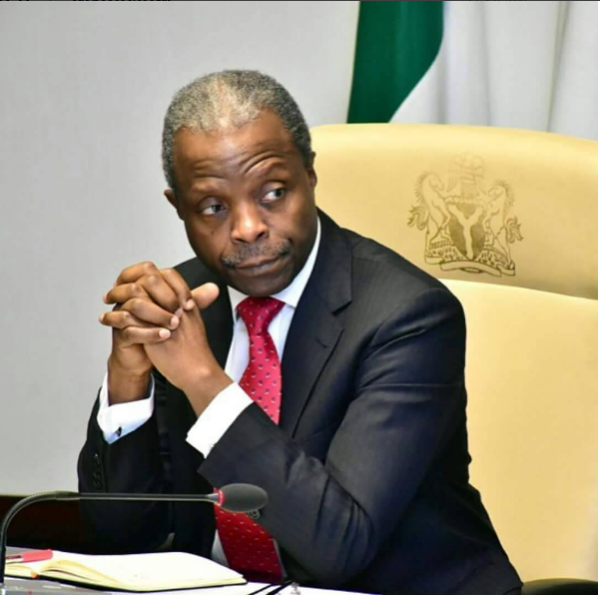The Federal Execuitive Council, FEC, has distanced itself from the confirmation made by the Acting President, Yemi Osinbajo on nominations made by the executives.
Recall that in April, the Acting President had revealed that he was in support of human rights lawyer, Femi Falana’s idea that the executive did not need to send the name of the acting chairman of the Economic and Financial Crimes Commission, EFCC, Ibrahim Magu to the senate for confirmation.
Osinbajo had in April said: “There is an argument, whether or not we need to present him (Magu) for confirmation and that’s a compelling argument from Femi Falana.”
“His (Falana) argument is that under the constitution, section 171, and if you look at that section, it talks about the appointments that the president can make. They include appointments of ministers, ambassadors and heads of agencies such as the EFCC. In that same section 171, the constitution rightly said that certain appointments must go to the senate such as ministerial and ambassadorial appointments.
“Those of heads of agencies like the EFCC do not have to go to the senate. That’s what the constitution says. But the EFCC act, which of course as you know is inferior, says that EFCC chairman should go to the senate for confirmation.
“I am sure that even a pocket book lawyer knows that when a legislation conflicts with constitution, it’s the constitution that prevails. I agree with Mr Falana that there was no need in the first place to have sent Magu’s name to the senate.”
However, two months after the Acting President made the statement, the upper legislative chamber has refused to grant Osinbajo’s request of confirming Lanre Gbajabiamila as the director-general of Nigeria Lottery Commission. The senate further decided to suspend the consideration of all the nominees which the executive sends to it for confirmation until the Acting President withdraws his statement.
Answering questions from reporters after the FEC meeting, the attorney-general of the federation, Abubakar Malami said that the cabinet cannot defend the Acting President as it did not decide on the matter.
He noted: “Although the issue came up for discussion at the cabinet meeting since the cabinet was not particularly connected or reached a consensus to maintain a particular position, it cannot begin to defend what it did not decide on.
“The fundamental consideration about the alleged statement is the fact that at no point ever did the federal executive council sit down to arrive at the decision in one way or the other as far as the issue of nomination or otherwise is concerned.
“So, I do not think it constitutes an issue for the federal executive council to make any clarification about because it has never been considered by the FEC.”

